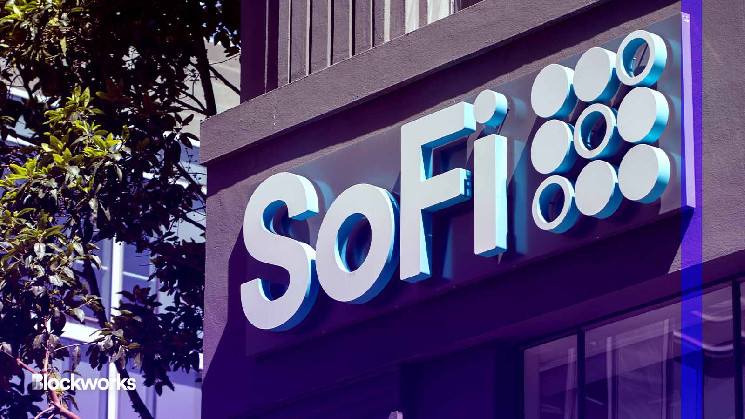SoFi, the financial-technology firm with an emerging cryptocurrency arm, has grown increasingly cautious of the US Security and Exchange Commission’s scrutiny over digital assets. The company went so far as to mention the possibility of being “forced to cease trading in certain types of assets.”
The publicly traded US company outlined a number of key risks bubbling up as the SEC has mulled putting in place a number of more stringent measures on crypto companies — including requiring that firms maintain in-house custody of digital assets owned by their customers.
SoFi, like many of its bank and quasi-bank competitors, laid out its regulatory concerns in its quarterly 8-K, filed with the SEC on Tuesday.
Read more: Federal Reserve to expand oversight of crypto-related activities at banks
The company’s stock was trading at $8.98 around midday Thursday in New York, roughly flat since the opening bell. Its shares rose on the company’s earnings at the end of July, when SoFi adjusted upwards its revenue expectations for the year. Net revenue was up 37% year over year through the second quarter. It reported a loss per share of six cents.
SoFi’s crypto business, while lagging crypto-native firms in asset terms, had through the second quarter grown to $166 million overall.
SoFi did not immediately return a request for comment.
Among its touted concerns, SoFi in the filing pointed to the SEC’s move in April to rejigger its Regulation ATS, as well as the regulatory’s Exchange Act Rule, which would reclassify what constitutes a crypto exchange.
If the proposal, which has undergone a public comment period, passes, entities that qualify as exchanges would face heightened oversight for facilitating trades of crypto assets believed to be securities.
“Pending final adoption of the proposed rule, it is possible that we would need to obtain additional regulatory permission to conduct our business,” SoFi said in its filing. “The time and cost of obtaining such permission could be significant, and is not guaranteed. Further, we may need to pause or alter certain aspects of our business until such permission is obtained.”
Federal Reserve crypto banking violation
That regulatory permission, in the company’s estimation, is not guaranteed. If “despite our best efforts,” the US securities regulator “does not view our compliance measures as sufficient,” unexpected consequences would play out.
Among the cryptocurrencies supported for trading by SoFi: bitcoin (BTC), ether (ETH), dogecoin (DOGE), litecoin (LTC), and ethereum classic (ETC). Solana (SOL) and cardano (ADA) were removed from the platform on June 9 — around the same time US regulators said both assets may constitute securities.
SoFi is trying to grow quickly in the crypto market while also making sure they keep the regulators on their side. Risks inherent to publicly traded companies that offer more than crypto alone, industry participants have said, are that weighty fines for crypto violations could reverberate negatively to other divisions.
Originally recognized as a private student loan provider, SoFi has expanded since its beginning to include equity trading and other traditional financial services.
The company was hit with a violation by the Federal Reserve last year for “certain crypto-related activities” found “not permissible” for a bank holding company. SoFi previously received that designation and is currently carrying out its crypto activities under a two-year conditional approval to continue doing so.
SoFi said it’s been “engaging” with the Federal Reserve on extending that two-year window, adding that there “can be no assurance that such attempts will be successful.”
According to the company, the most dire outcome would be that it may “ultimately be forced to wind-down such [crypto] activities in a short period of time.”
 blockworks.co
blockworks.co
